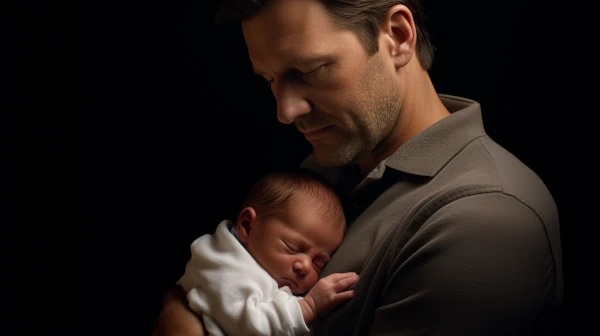Breast cancer, ovarian cancer, and endometrial cancer are three of the most dreaded diseases among women. A recent study conducted at the City of Hope, a cancer research center in Los Angeles, reveals that your father’s age when you were born plays a significant role in determining your risk of developing these cancers. This finding underscores the importance of understanding the various factors that could impact your overall risk for developing these serious health conditions.
The Impact of Your Father’s Age
The study’s lead researcher, Yani Lu, states that parental age at conception, particularly paternal age, seems to be connected to a wide array of effects on the health and development of the offspring. This study analyzed the health records of more than 130,000 women living in California, and it discovered that fathers on both the youngest and oldest ends of the age spectrum produced daughters who faced increased risks of certain types of tumors.
Specifically, women born to fathers under the age of 20 had a 35% higher risk of breast cancer and twice the chance of ovarian cancer compared to women whose fathers were between 25 and 29 years old during their daughters’ birth. In addition, women born to fathers aged 30 to 34 during childbirth showed a 25% increased risk of endometrial cancer compared to their counterparts born to fathers aged 25 to 29.
Factors Behind the Age-Related Risk
While the City of Hope study has limitations and more research is needed to fully understand the relationship between paternal age and the cancer risks of daughters, there are potential factors that could explain this age-related risk. One possibility is that older fathers have an increased likelihood of having genetic mutations in their sperm, which could then be passed along to their daughters and place them at a heightened risk for developing cancer. On the other side of the spectrum, very young fathers might not have fully mature sperm, which could also have an impact on their daughters’ cancer risk.
Another potential factor involves socioeconomic status. Older and younger fathers might differ significantly in terms of their financial and social wellbeing at the time of their daughters’ birth. These differences could affect factors such as the prenatal care women received, their nutrition during pregnancy, and their overall health status at childbirth, all of which could potentially impact the cancer risks of their daughters.
A Holistic Approach to Risk Assessment
It’s important to remember that the age of your father when you were born represents just one piece of the puzzle when it comes to understanding your risk for developing breast cancer, ovarian cancer, or endometrial cancer. In order to take a truly holistic approach to risk assessment, it’s critical to consider a wide range of factors, including your family history of cancer, your exposure to environmental toxins, your diet and exercise habits, and your personal medical history.
For instance, women with a strong family history of breast or ovarian cancer may want to consider genetic testing to determine their risk of carrying the BRCA1 or BRCA2 gene mutation. Similarly, regular screenings and preventive measures, such as mammograms and Pap tests, can help detect early signs of cancer and improve the chances of successful treatment.
Reducing Your Cancer Risk
While some risk factors, such as your paternal age or genetic predisposition, are beyond your control, there are still numerous steps you can take to reduce your overall risk for developing these cancers. Leading a healthy lifestyle is essential for minimizing your risk, as it influences a host of factors that can contribute to the development of cancerous cells.
Here are some tips for reducing your cancer risk:
- Maintain a healthy diet: Consume a balanced diet rich in fruits, vegetables, whole grains, and lean protein sources, while limiting processed foods, red meat, and added sugars.
- Get regular exercise: Engage in at least 150 minutes of moderate-intensity exercise or 75 minutes of vigorous exercise per week.
- Avoid tobacco products: Smoking increases the risk of multiple cancers, including breast and endometrial cancer.
- Moderate alcohol consumption: Limit your daily alcohol intake to one drink for women and two drinks for men.
- Practice sun safety: Protect your skin from the sun’s harmful rays by wearing protective clothing and applying sunscreen regularly.
- Stay up-to-date with screenings: Follow your healthcare provider’s guidelines for getting routine cancer screenings and tests, such as mammograms and Pap tests.
In conclusion, while further research is needed to fully understand the relationship between paternal age and cancer risk, staying aware of this potential connection can help you take a more proactive approach to your health. By understanding the various factors that could impact your risk of developing breast, ovarian, or endometrial cancer, you can make informed choices about your lifestyle and healthcare to minimize your overall risk.



